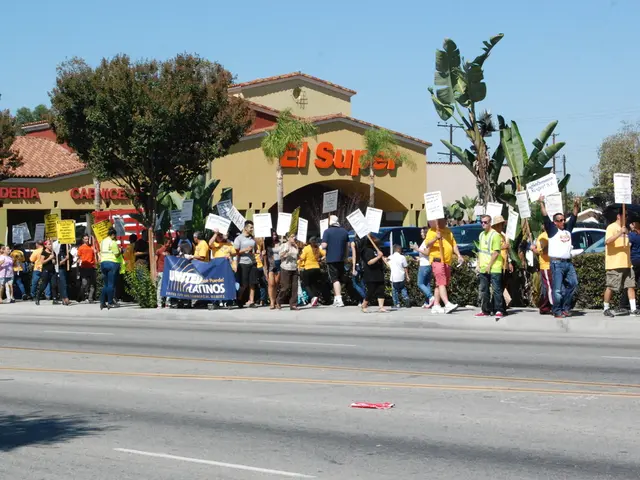Independence in Action: Personal Achievements Without Dependence on Others
In the heart of Germany, the city of Cologne played host to a significant and often overlooked chapter of resistance against the Nazi regime. This resistance, rooted in socialist and communist circles, is the subject of Martin Rüther's extensive research and documentation.
Martin Rüther, a renowned historian, has spent a considerable amount of time at the NS-Documentation Centre, and his work has resulted in the publication of a five-volume book series titled "Resistance and Dissent in Cologne 1933-1945". The first volume, focusing on "Social Democrats, Socialists, and Trade Unionists", has already been published, with subsequent volumes delving into communists, church resistance, oppositional youth, and the helper resistance.
The socialist resistance in Cologne was not a fleeting act of defiance, but rather an ongoing struggle that required stable support bases to survive the harsh repression meted out by the Nazi regime. These underground networks, often operating in tight-knit communities and networks of trusted contacts, provided the backbone for resistance that was necessary for "permanence" in defying Nazi rule.
One of the key figures in this resistance was Ludwig August Jacobsen, a Cologne resistance fighter who felt betrayed and isolated in an environment that understood him less and less. Another was Karl Zimmermann, an SPD member who organized resistance from Cologne and was imprisoned. Peter Keller, a member of the Socialist Workers' Party, was also active in the Cologne resistance and suffered a similar fate.
Interestingly, the self-understanding of these resistance fighters was not one of shock, but rather a calculated weighing of options and a sense of urgency. This calculated approach, coupled with their resilience and perseverance, enabled them to sustain their activities over time and contribute to the broader anti-fascist fight within Germany.
Martin Rüther's work also sheds light on the complex dynamics between social democrats and communists during this period. There was little mutual understanding or sympathy between the two groups in February and March 1933. However, socialist intermediate groups, which stood between the SPD and KPD and wanted to overcome the blockades and divisions in the labor movement with new concepts, were very active in the resistance and open to theoretical discussions.
The Gestapo did not have a systematic infiltration of resistance groups but relied heavily on informants. Denunciations played a large role in exposing these resistance groups. Despite this, the socialist resistance in Cologne was able to maintain a level of secrecy and continue their activities, contributing to the undermining of Nazi control and supporting the Allied cause.
The Cologne socialist resistance, as exemplified by the work of Martin Rüther, is historically significant as a demonstration of organized internal opposition within Nazi Germany. It serves as a reminder of the crucial role of underground socialist networks in sustaining resistance efforts and embodying persistent anti-fascist defiance.
In the words of Martin Rüther, the purpose of historical science is to show people how it was then and how it came to be, and to prevent dictatorships and totalitarian regimes from happening again. His research on the Nazi period in the Oberbergischer Kreis, a chapter that has not yet been processed, continues this important work.
Read also:
- Weekly happenings in the German Federal Parliament (Bundestag)
- Southwest region's most popular posts, accompanied by an inquiry:
- Discussion between Putin and Trump in Alaska could potentially overshadow Ukraine's concerns
- Massive 8.8 earthquake hits off the coast of Russia's Kamchatka Peninsula, prompting Japan to issue a tsunami alert.






